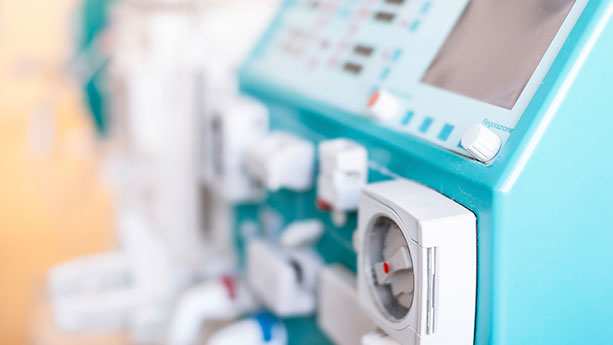Diabetes and high blood pressure cause most cases of chronic kidney disease, so keeping your blood pressure and blood sugar in a target range, plus losing weight and getting more exercise, can help slow or stop damage to your kidneys. Sutter care centers have extensive resources to help.
But if your kidneys show signs of damage, we’re here to help you achieve the best possible health. With a network that includes nearly 150 nephrologists (doctors who specialize in kidney disease), we’ll work closely with you to determine the ideal treatments, procedures and medications for your condition.

Our team of primary care nurses, nephrologists, social workers, pharmacists and renal dietitians offer a full range of services, such as one-on-one consultations, kidney-stone laser treatment, ureteroscopy, pregnancy-related kidney care, transplant screenings and more. Should your kidneys need help in filtering wastes from the blood, you’ll have access to in-hospital or at-home hemodialysis or peritoneal dialysis, including thorough education so you can control the process with the least interruption to your daily life.
In the past, renal cancer surgery frequently required an invasive operation to remove the entire kidney, such as with a nephrectomy. Sutter’s investment in advanced technologies, including the da Vinci robotic surgery system, enables surgeons to safely and accurately remove kidney tumors while leaving the kidney intact. Benefits to you: more potential for kidney preservation as well as significantly less pain and blood loss, less scarring, shorter recovery time and better cancer cure rates.
If the time comes to consider kidney transplant, you’ll be treated by experts. Our kidney transplant teams have earned national acclaim for transplant innovation and success rates.













